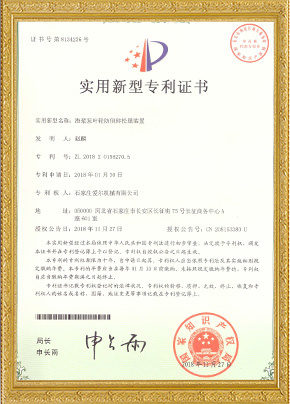नवम्बर . 09, 2024 22:48 Back to list
Manufacturers of High-Performance Slurry Pump Impellers for Industrial Applications
Understanding the Importance of Slurry Pump Impellers in Industrial Applications
Slurry pumps play a pivotal role in various industrial applications, particularly in sectors such as mining, dredging, and wastewater treatment. At the heart of these pumps lies the impeller, a critical component responsible for fluid movement. This article discusses the essential features of slurry pump impellers, their manufacturing processes, and their significance in maintaining efficient operations in challenging environments.
What is a Slurry Pump Impeller?
A slurry pump impeller is designed to transfer the kinetic energy to the slurry, which is typically a mixture of liquid and solid particles. The design of the impeller is vital because it directly affects the pump's performance, efficiency, and ability to handle abrasive materials. Impellers come in various shapes and sizes, tailored to the specific demands of the application they will serve. Depending on the slurry characteristics, manufacturers may use different materials such as high chrome iron, rubber, or polyurethane to fabricate the impellers. Each material choice offers varying levels of erosion resistance and durability, crucial for long-term service in harsh conditions.
Key Features of Slurry Pump Impellers
1. High Efficiency An efficiently designed impeller ensures optimal fluid movement through the pump, minimizing energy consumption and operational costs.
2. Durability and Wear Resistance Given that slurry often contains abrasive materials like sand and gravel, impellers need to be robust. Quality impellers resist wear and extend the pump's lifespan, reducing the need for frequent replacements.
3. Design Versatility Depending on the application, slurry pump impellers can be customized in terms of diameter, blade geometry, and manufacturing materials. This versatility allows industries to select the most appropriate impeller design for their specific needs.
4. Corrosion Resistance In many industrial environments, slurries can be chemically aggressive. Using corrosion-resistant materials ensures that the impeller maintains its performance, even in harsh chemical conditions.
5. Maintenance-Friendliness A well-designed impeller simplifies maintenance tasks. Easy access for cleaning and replacement helps minimize downtime, contributing to overall productivity.
slurry pump impeller factory

Manufacturing Processes of Slurry Pump Impellers
The manufacturing of slurry pump impellers is a meticulous process that combines advanced engineering with precise machining. The process typically involves
1. Material Selection The choice of material is pivotal. Manufacturers analyze the properties of the slurry, including viscosity, particle size, and corrosive nature, before choosing an appropriate material.
2. Casting For metal impellers, the casting process is employed. Liquid metal is poured into molds and allowed to solidify, forming the impeller's shape.
3. Machining Post-casting, the impellers undergo machining to achieve the desired tolerances and surface finishes. CNC (Computer Numerical Control) technology is commonly used to enhance precision.
4. Coating In cases where additional protection is required against corrosion or wear, impellers may receive special coatings.
5. Quality Control Throughout the manufacturing process, rigorous quality control checks ensure that each impeller meets the required specifications and standards.
Conclusion
In summary, slurry pump impellers are critical components in ensuring the efficient and effective movement of slurries across various industries. Their design and construction are vital to achieving high performance, durability, and longevity. Manufacturers must prioritize quality and adaptability when creating these impellers to meet the diverse needs of their clients. As industries continue to evolve, the demand for advanced slurry pump technology and reliable impellers will undoubtedly grow, highlighting the importance of innovative manufacturing processes and materials in achieving operational excellence.
-
Small Dredger and Marine Pontoon-Aier Machinery|Dredging Solutions&Marine Equipment
NewsAug.11,2025
-
Centrifugal Submersible Pump Manufacturer | Durable & Efficient
NewsAug.11,2025
-
Small Dredger and Marine Pontoon Solutions by Aier Machinery Hebei Co., Ltd
NewsAug.11,2025
-
Small Dredger and Marine Pontoon - Aier Machinery Hebei Co., Ltd | Industrial Dredges, Marine Pontoons
NewsAug.11,2025
-
Small Dredger and Marine Pontoon - Aier Machinery Hebei Co., Ltd. | Industrial Efficiency & Durable Solutions
NewsAug.11,2025
-
Small Dredger and Marine Pontoon - Aier Machinery Hebei Co., Ltd | Gold Mining Equipment, Durable Dredging Solutions
NewsAug.10,2025
